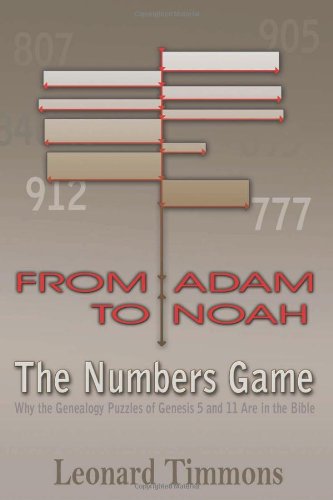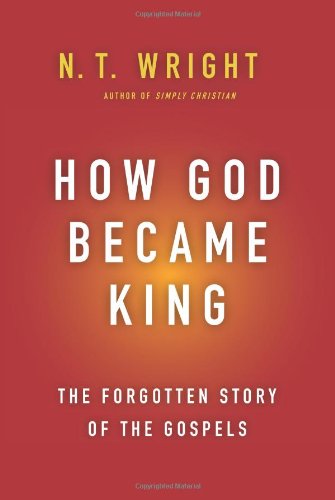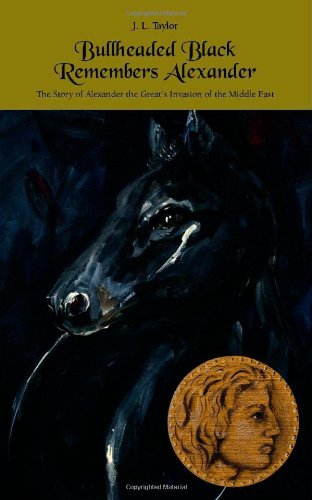Book review: From Adam to Noah: The Numbers Game
by Leonard Timmons
★★★
What do the ages of the first humans in the Bible mean? Could people really have lived that long? Leonard Timmons has found an ancient calendar hidden in these numbers, and feels this discovery is key to understanding the Bible.
Timmons’s calendar is constructed by charting, on a timeline, the births and deaths of the men between Adam and Noah, fudging a little here and there to create a few more meaningful points on the timeline, and then discovering that it breaks down into four portions of 364 years plus one 5-year portion. Turn that into days, and you have a 364-day year, plus a 5-day seasonal correction after four years (think of our leap day). 364, for calendar aficionados, is the Jubilees calendar from the Qumran texts, so-liked because it plays nice, dividing neatly into 52 seven-day weeks.
Timmons’s analysis is founded on arithmetic combinations of round numbers (such as 500 or 1000) and of the number seven. Lamech’s age at his death, 777 years, appears to be a clue. For example, 56 is a nice number because it is 7×7+7. 84 is an excellent number because it is 77+7. Seven is recognized as God’s number, a perfect number, the number of days in the week. Readers of Revelation are quite aware of how important seven, and in particular three sevens (777), are in Biblical thinking.
Timmons is correct that numerology was important to the ancients, often used as a means of Biblical enlightenment. Consider the 666 of Revelation, and the miraculous catch of 153 fish by Jesus’ disciples. Timmons takes a stab at solving both of these riddles, which might be a mistake on his part; while no convincing solutions to the second puzzle have been offered, making the 153 puzzle fair game for speculation, scholars are nearly unanimous and surely correct in solving the 666 puzzle. (See http://www.dubiousdisciple.com/2011/01/revelation-1318.html and http://www.dubiousdisciple.com/2011/01/revelation-1318_27.html ) In any case, I would not be surprised at all to discover that there is meaning in the ages of the earliest humans in the Bible. It’s far more likely that the numbers have some sort of meaning to the authors than that people actually lived that long! However, even after reading Timmons’s book, a hidden calendar code seems a bit too conspiratorial for my taste. Timmons may be on the right track with his “meaningful numbers,” but attributing the whole thing to a hidden calendar doesn’t feel right to me.
That is, however, the book’s premise: Not only is there a calendar hiding within the ages of the earliest humans, but it has been purposefully hidden. This is not just numerology, it’s a devised puzzle, and (in my opinion) an inelegant one. The authors were not content just to lay out a calendar; they carefully hid the calendar, purposefully confusing us, swapping the meaningful number 56 here and there with 65 (the reverse of its digits) to confuse us, doubling and halving numbers here and there to bewilder us.
So who imbedded these puzzles? Perhaps collators of the Bible while in Babylonian captivity, or shortly after they returned to Jerusalem? That sounds somewhat believable, but Timmons thinks not; he argues instead that the Bible should be thought of as an ancient educational textbook for the enlightened, a sort of test to divide good puzzle-readers from bad. The Bible is a book of riddles to help the initiate develop his talent for insight. We’re not just talking about the creation stories; the Bible’s authors have encapsulated hidden knowledge in its texts from Genesis to Revelation! An “insight school” that lasted a thousand years! (Timmons actually suggests thousands).
Timmons rejects the Documentary Hypothesis (which proposes that the Torah was written by at least four distinct authors, none of them Moses). I cannot help but think he commits another error by pitting his puzzle theory against the Documentary Hypothesis; it seems far more reasonable to me that the Documentary Hypothesis disproves the ancient textbook idea rather than vice-versa.
Anyway, the hidden calendar is not really the important thing. It’s just a discovery that should prompt us to read the Bible differently; to reveal to us the surprising intellect and understanding of its authors. Free now to explore a deeper meaning in the scriptures than a literal reading, Timmons next launches into his interpretation of the Bible’s themes; how the ancients thought of demons, angels, soul, spirit, faith, even God … and it’s nothing like what we thought they meant. This insight helps Timmons decode stories like the Flood and the Garden of Eden, and he provides two creative and fascinating interpretations. Even Jesus’ parables and Revelation’s mysteries are revealed.
I found the book to be an interesting fringe theory, and fun with numbers (right up my alley), but not something I found convincing. However, my feeling is that there is surely a 4- or even 5-star book idea here, that Timmons’s interpretations are ingenious, but that he overreaches by claiming them to be the correct interpretation … as if the Bible writers actually meant their stories to be read this way.

Exodus 3:14, the Divine Name of God
And God said unto Moses, I AM THAT I AM: and he said, Thus shalt thou say unto the children of Israel, I AM hath sent me unto you.
//Moses, worried that Israel won’t accept his authority if he returns to Egypt to try and rescue the children of Israel, asks God for God’s name. God identifies himself as I AM, in what became recognized as a Divine Formula. For example, John’s Gospel seven times presents Jesus as the I AM in a claim of divinity. In John, the Jews recognize this claim, and wish to stone him for impersonating God.
But what does the phrase really mean? Other suggested translations include “I will be who I will be,” or “I cause to be what I cause to be.” In each case, the answer isn’t an answer at all for poor Moses. Karen Armstrong believes it was a Hebrew idiomatic expression to denote deliberate vagueness. God will be whatever or whomever he wishes!
This vagueness may have contributed to the understanding that God’s name was to be revered, not dissected. The two most common names for God in the original Hebrew are Elohim and YHWH, and the latter became so sacred that it was never spoken aloud. Readers of the scriptures would substitute the name Adonai, meaning “my Lord.” YHWH is usually written and pronounced Yahweh by today’s scholars (some references read Jehovah), but in truth, the pronunciation of God’s holy name has been forever forgotten through lack of use. We no longer even know the name of God.
2 Peter 1:20 No private interpretation
Knowing this first, that no prophecy of the scripture is of any private interpretation.
//This verse is often brought up as a sort of shoulder-shrug dismissal of new insights in scripture; a way of saying the only correct interpretation must be the one that has survived for 2,000 years. As if any one interpretation has survived! Theologians have wrestled with the Bible for as long as its words have been considered scripture.
Admittedly, there is something to this line of thinking. One should humbly admit that other interpretations are just as carefully thought-out. But the verse should never be used to categorically silence alternate opinions, as it once was!
For example, we had a terrible time getting our scriptures translated from the Latin Vulgate into a modern language. Making the scriptures readable to the masses would severely undermine the Church’s authority. Consequently, when John Wycliffe (1328-1384) translated the Bible into English, this verse came into play. Wycliffe’s work was considered a form of heterodoxy and quickly outlawed. Anyone found with an English Bible was subject to execution. Wycliffe died as a heretic and traitor, and 44 years after his death, under papal decree, his body was exhumed and burned. But for many, reading the Word of God was worth the risk, and black market Bibles were common, until the time of King Henry VIII in the 16th century.
So, how many of you can read Latin? Thank God for our right to private interpretation today, or most of us wouldn’t have any interpretation at all.
Book review: How God Became King
by N. T. Wright
★★★★
Wright begins with the creeds, about Jesus being born of a virgin and dying for our sins, and bemoans the “missing middle.” Christianity today has become too focused on the beginning and end of the Jesus story, and has ignored a primary message of all four Gospels: that God has come back, in the form of Jesus, and reigns today as King.
So who is the Jesus in the middle? A violent revolutionary? A wide-eyed apocalyptic visionary, expecting the end of the world? A mild-mannered teacher of sweet reasonableness? If he was one of the first two, Jesus was deluded. Even if it’s the third case, Jesus was similarly deluded, because most of his followers from that day to this have been anything but sweetly reasonable. Instead, they have busied themselves inventing dogmas (like the virgin birth and the resurrection), writing creeds, and establishing the church.
Thankfully, none of these Jesuses match the Gospels. Wright is sick of scholars and books which portray Jesus as a good Jewish boy who would have been horrified to see a church spring up in his name. He wants us to see Jesus the way the Gospels tell the story, as God coming down to be King of the earth. Wright’s guns are blazing in this book (his passion took me rather by surprise), firing at liberals and feel-gooders. God is no doddering old boss who used to run the company but has since been banished to a cozy upstairs office where he can sit and imagine he’s still in charge. God is king. The story of Jesus is the story of how Israel’s God became king.
Wright’s approach this time is not at all objective. He is a believing Trinitarian, and speaks out against the popular opinion that the high Christology of John is a later development. From the beginning, the Gospel story has been about the divine Jesus, Son of God, God Himself. On Mark’s very first page, the story of Jesus’ baptism, we find “every bit as high a Christology as John’s, though it is a high Jewish Christology.” Wright also discusses Matthew’s viewpoint and Luke’s viewpoint, in each case pointing out the evidence that they considered Jesus divine. Wright never quite nails down his definition of Christ’s divinity … none of this “Jesus is God” direct approach, just as no such claim exists in the scriptures … but we should make the association in some mystical way. For Wright, this verse in Luke says it all:
“Go back to your home,” said Jesus, “and tell them what God has done for you.” And he went off around every town, declaring what Jesus had done for him.
In the end, I am fully behind Wright’s view that the Gospels present Jesus as the fulfillment of God’s return to earth as King, and in my own mystical way I confess to be sort of a Trinitarian, but I simply can’t buy the argument that all of the Gospels contain the same high Christology as John’s Gospel. There are too many opposing arguments that Wright fails to address.

Acts 8:5, Was the Gospel Given to the Samaritans?
Then Philip went down to the city of Samaria, and preached Christ unto them.
//One confusing aspect of the Gospel story is the relationship between the Jesus movement and the Samaritans. We all know the story of the Good Samaritan, and many have heard about Jesus meeting the Samaritan woman at the well. You can probably quote other verses that hint that Jesus respected and cared about them, including today’s verse, where Philip preaches directly to them.
Yet it must not have been easy. The Samaritans were in general despised and distrusted, even feared, and looked down upon because of their intermarriage with gentiles. Samaritans had their own version of the scriptures, and their own holy places, which most definitely did not include Jerusalem!
In Luke 9, Jesus has a bad experience with Samaritans, who will not welcome him. In Matthew 10, when Jesus sends his disciples out to preach, he directs them to stay away from Samaria. But John’s Gospel is quite sympathetic to the Samaritans, telling of a time when they did welcome Jesus, and when Jesus did preach to them (see John, chapter 4). Jesus is so sympathetic, in fact, that in John, the Jews accuse Jesus of being a Samaritan!
While the evidence is a bit hazy, it does appear that one of the more controversial aspects of Jesus’ ministry is his acceptance of Samaritans.
Book review: Bullheaded Black Remembers Alexander
by J. L. Taylor
★★★★
This didn’t have the focus on ancient beliefs that I was anticipating, but it addresses runaway religion in a roundabout way. Alexander the Great’s loyal horse, Bullheaded Black, dies in the war against India, and from a winged vantage point up in heaven narrates his version of Alexander’s dreams and victories. We hear straight from the horse’s mouth what Alexander was thinking and what was behind his great drive for conquest.
Alexander’s personal tutor, Aristotle, teaches him an appreciation for natural sciences and inquisitive learning. Alexander loves the writings of Homer and its wonderful stories of heroes and gods, but Aristotle cautions against unwarranted belief. “The written word is valuable and it is ancient and it is powerful, but that doesn’t make a book completely true. Let no book and no person ever close your mind to reality, not even the epics, not even Homer.”
Yet Alexander was born a warrior. Horses are not real big on war, but B.B. reigns in his criticism, instead focusing on the positive side of world domination. Alexander becomes a proponent of religious tolerance, much to the frustration of his comrades. Much of the story centers around his personal quest to understand his anointed place among men and gods … and which gods. Is he really the son of Zeus? In Egypt, he seeks out the oracle of Siwah, and though he’s closed-mouthed about what he learned there, he returns from this personal pilgrimage even more confident of his destiny. It turns out he is not only the son of Zeus, but of Amon and of Ra. Says Alexander within earshot of his horse, “It seems the principal gods are one.God is one. It matters not the name.”
A cute story-book read, and I enjoyed it.

Matthew 5:17-18, Fulfillment of the Law
“Do not think that I have come to abolish the Law or the Prophets; I have not come to abolish them but to fulfill them. I tell you the truth, until heaven and earth disappear, not the smallest letter, not the least stroke of a pen, will by any means disappear from the Law until everything is accomplished.
//That was Jesus speaking, in the book of Matthew. These two verses are often quoted with some bewilderment, or as evidence of contradiction in the Bible, because other passages seem to say just the opposite.
Luke 16:17 says, “The Law and the Prophets were proclaimed until John. Since that time, the good news of the kingdom of God is being preached.” In the very next verse, Jesus softens the blow, admitting that it’s very difficult for the Jews to give up their law as required, because “It is easier for heaven and earth to disappear than for the least stroke of a pen to drop out of the Law.” Doesn’t that contradict Matthew?
Paul certainly expected the Law to go away. Romans 7:6 explains, “We have been released from the law so that we serve in the new way of the Spirit, and not in the old way of the written code.” Galatians 3:13 tells how we have been redeemed by Christ from the “curse of the law,” and Galatians 5:8 promises that if we follow the Spirit, we don’t need the law.
So what was Matthew saying? Many scholars, noting Matthew’s Jewish bent, see his writing as explicitly combating the attempt by other Christians to supersede the Law. But I read it differently.
To me, Matthew, writing some fifteen years or so after the Great War devastated Jerusalem and the Temple, sees in that destruction a fulfillment of the covenantal promises. When Matthew says “not the least stroke of a pen will disappear” from the Law, he means God will not lessen the suffering of his people one iota from what he threatened. Matthew knows this to be true; he watched it happen.
Matthew 5:16, Should your good works be seen of men?
Let your light so shine before men, that they may see your good works and glorify your Father in heaven.
//One of the basic instructions we understand as Christians is to “let our light shine.” As 1 Peter 2:12 puts it, keep your “conduct honorable among the Gentiles,” that “they may by your good works which they observe, glorify God in the day of visitation.”
But can there be too much of a good thing? The Bible seems to contradict itself on this topic. Matthew says of the scribes and Pharisees, “all their works they do to be seen by men.” Check out the sermon on the mount, in Matthew 6, which gives it to us straight:
Take heed that you do not do your charitable deeds before men, to be seen by them. Otherwise you have no reward from your Father in heaven. Therefore, when you do a charitable deed, do not sound a trumpet before you as the hypocrites do in the synagogues and in the streets, that they may have glory from men. Assuredly, I say to you, they have their reward. But when you do a charitable deed, do not let your left hand know what your right hand is doing, that your charitable deed may be in secret; and your Father who sees in secret will Himself reward you openly.
So, what do we do? Humbly hide our good works, or proudly let them shine? I’m sure I’m fooling nobody; humility, balance, and moderation should be our guide.
Book review: Genesis People
by Sheila Deeth
★★★★★
Adorable!
If Sheila doesn’t like this word to describe her book, well, she’ll just have to get over it.
45 big-print, two-page stories introduce 45 characters from the book of Genesis, in a Dubious-Disciple-approved way. Real World, Real People, Real God, the subtitle proclaims. You’ll see what she means as soon as you start reading.
So Cain and Abel made their sacrifices. They made a fire and burned the best of the grain, and meat from the best of the animals for God. Then Cain noticed that the smoke from the meat was much thicker and smelled much nicer than the smoke from the grain. “Is that because God likes Abel more than me?” Cain asked. His mother said it was just because the fat from the meat burns hotter, but Cain wasn’t listening to her. The more Cain thought about it, the less he bothered to listen to anyone.
The book reads like one of those sunny children stories written for adults, the kind that leaves you smiling the whole way through. The back cover calls this a “middle-school reader for book-lovers of all ages, telling stories for all time.” I think that about nails it.

Guest post: from Volnaiskra
The man who loves his life will lose it, while the man who hates his life in this world will keep it for eternal life. –John 12:25
//An Australian acquaintance, David Bleja, happened to post this comment on my blog, in response to my review of John J. McGraw’s book, Brian & Belief. After you read his insightful comments, check out his excellent blog at http://www.volnaiskra.com/
*********
I share McGraw’s distaste for an idea of the afterlife that revolves around the slavish stroking of a divine ego. But the general death of self that he seems to consider so abhorrent is, for many, a sublime prize worth devoting one’s life to.
Many faiths, philosophies and scientific traditions stress that selfhood is a lie – a distortion of reality at best, a lonely prison at worst.
For example, Buddhism rightly points out that if a wave were to be obsessed about how unique and independent it was, it would be both wrong and unhappy, forever afraid of its imminent annihilation. If, however, it learned to see itself not as a wave but as a part of a great ocean, it would appreciate the true purpose, majesty and timelessness of its existence. Or, as Jesus said, a person obsessed with selfhood is to be pitied, just like a seed that frets so much about ceasing to be a seed that it never lets itself become a tree.
It’s not just the mystics searching for nirvana who long for dissolution of self. It’s also the lovers who long to lose themselves in orgasm, the parents whose focus on children gives their lives higher meaning, the fans who yearn to melt into the crowd in a rock concert, the patrons of S&M clubs who long to surrender entirely to the will of another, or the hippies who cultivate a sense of oneness with Gaia.
Of course on a basic, default level, we all have a strong instinct for self-preservation, and this is what McGraw seems to speak to in the quoted paragraph. That’s just part of human nature – but a part that comes largely from the more primitive, reptilian part of the brain. Many have found a worldview that centers around a preservation of selfhood is actually deeply unsatisfactory.
Got an opinion? 0 comments














 354 Circles
354 Circles
 603 Goodreads Friends & Fans
603 Goodreads Friends & Fans

 Hello! I'm an author, historical Jesus scholar, book reviewer, and liberal Christian, which means I appreciate and attempt to exercise the humanitarian teachings of Jesus without getting hung up on any particular supernatural or religious beliefs.
The Bible is a magnificent book that has inspired and spiritually fed generations for thousands of years, and each new century seems to bring a deeper understanding of life’s purpose. This is true of not only Christianity; through the years, our age-old religions are slowly transforming from superstitious rituals into humanitarian philosophies. In short, we are growing up, and I am thrilled to be riding the wave.
I avidly read all thought-provoking religion titles. New authors: I'd love to read and review your book!
Hello! I'm an author, historical Jesus scholar, book reviewer, and liberal Christian, which means I appreciate and attempt to exercise the humanitarian teachings of Jesus without getting hung up on any particular supernatural or religious beliefs.
The Bible is a magnificent book that has inspired and spiritually fed generations for thousands of years, and each new century seems to bring a deeper understanding of life’s purpose. This is true of not only Christianity; through the years, our age-old religions are slowly transforming from superstitious rituals into humanitarian philosophies. In short, we are growing up, and I am thrilled to be riding the wave.
I avidly read all thought-provoking religion titles. New authors: I'd love to read and review your book!
 Hi! While Lee writes the articles and reviews the books, I edit, organize, and maintain the blog. The views expressed here are Lee's but I'm his biggest supporter! :-)
Hi! While Lee writes the articles and reviews the books, I edit, organize, and maintain the blog. The views expressed here are Lee's but I'm his biggest supporter! :-)
Connect With Me!